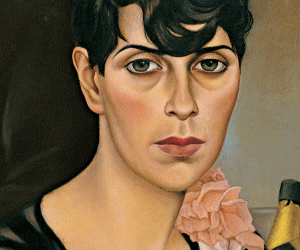Here’s something I didn’t know we were missing: Black literary satire. Over the years, Black cinema has poked fun of Black filmmakers (Hollywood Shuffle), Black musicians (Fear of a Black Hat), Black artists (the Candyman sequel), and Black playwrights (The 40-Year-Old Version). The printed word, however, has remained untouched, as if Black literary success has been too rare to make jokes about.
Until now, that is. Cord Jefferson’s American Fiction is a delectable bit of satire adapted from Percival Everett’s novel Erasure (which I didn’t get a chance to read) and aimed squarely at Black writers and the compromises they have to make to get their message to white America. You can savor one of 2023’s best comedies this weekend as it opens at theaters scattered around Tarrant County.
Our protagonist is Thelonious “Monk” Ellison (Jeffrey Wright), a struggling L.A.-based novelist who keeps pissing off his snowflake-like white literature students by reminding them that racism used to exist. His department sends him off to Boston to promote the nonexistent sales of his latest book, even though he says, “I hate Boston. My family is there.” He has to extend his temporary stay in Beantown when his sister (Tracee Ellis Ross) suddenly dies from a heart attack, and while settling family affairs, he conceives the idea of adopting the pseudonym “Stagg R. Leigh” (from the Lloyd Price song) and writing a novel full of offensive Black stereotypes that will pander to white publishers and readers. To his embarrassment, the novel — entitled My Pafology — is an enormous hit.
First-time filmmaker Jefferson is a TV writer whose resumé includes The Good Place and Succession. He composes scads of tasty dialogue in Monk’s conversations with his literary agent (John Ortiz) and his adoption of a ghetto accent in a phone conversation with a white publisher. When writing My Pafology, his characters — a gun-toting gangsta (Okieriete Onaodowan) and a homeless drunk (Keith David) — materialize in his mansion and play out a maudlin scene that culminates in the thug shooting the drunk for no reason: “I ain’t shit ’cause you ain’t shit!”
Overshadowing it all is a rival author (Issa Rae) who hails from an even more privileged background than Monk’s and has scored a hit novel of her own entitled We’s Lives in da Ghetto. Sadly, all the white characters eat this up with golden spoons. Overcome with shame, Monk tries to sabotage his multimillion-dollar book deal by changing the title to Fuck, which only makes it more popular.
It’s such fun seeing Monk deal with his mother’s neighbor (Erika Alexander) who might fall in love with him and his brother (Sterling K. Brown) who has just come to terms with his homosexuality and is feeling all the feelings after a lifetime of repression. Wright gives a great turn as the creator who has to hide his selling out from everyone he holds dear.
Yet I think Jefferson might have written himself into a corner here. Monk ends up negotiating with a Hollywood producer (Adam Brody) about a movie script based on the events of his own life, and his attempts to end the story ambiguously run up against the white guy’s desire to have Monk’s fictional alter ego riddled with bullets by racist cops. It’s a crackling joke, but it leaves no room for Black artists to have any sort of artistic integrity. American Fiction seems to say that Black creators can only succeed if they suck up to white people the way Monk has. From my perch here, I see evidence several times a year that that isn’t true. Then again, this is a deliriously funny debut from a new comic voice in American cinema that’ll leave you wanting to see Jefferson’s next piece of fiction.
American Fiction
Starring Jeffrey Wright and Erika Alexander. Written and directed by Cord Jefferson, based on Percival Everett’s novel. Rated R.












